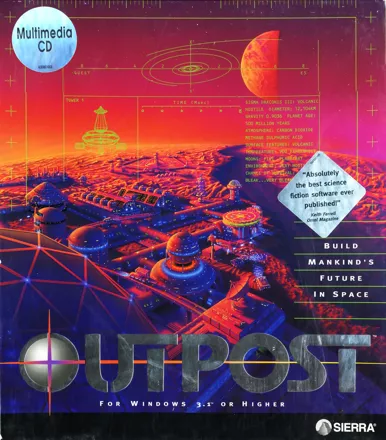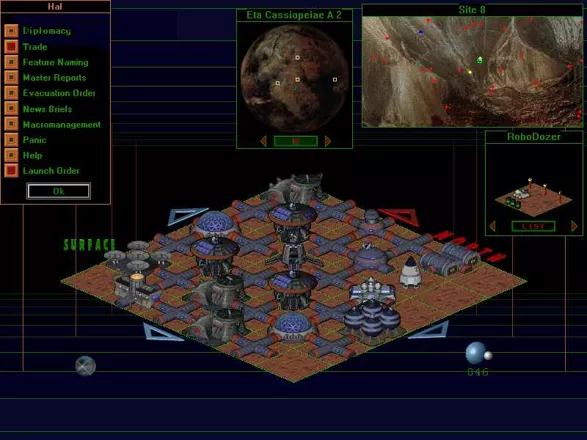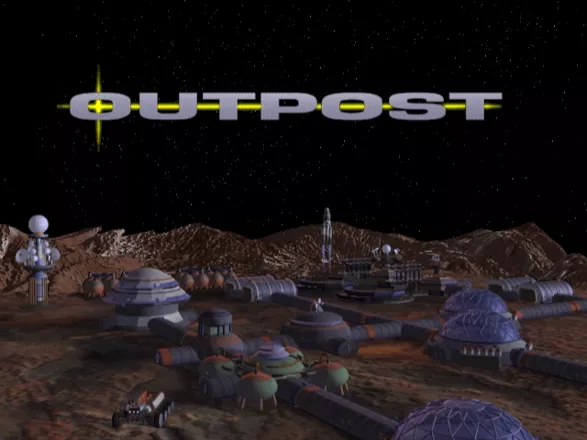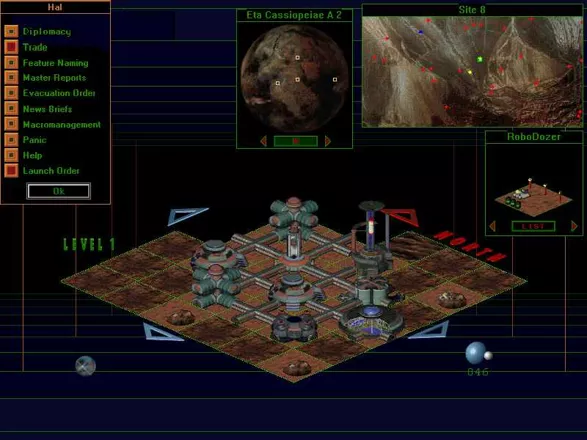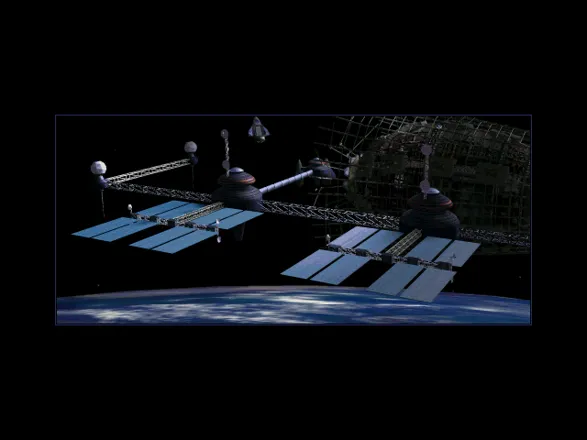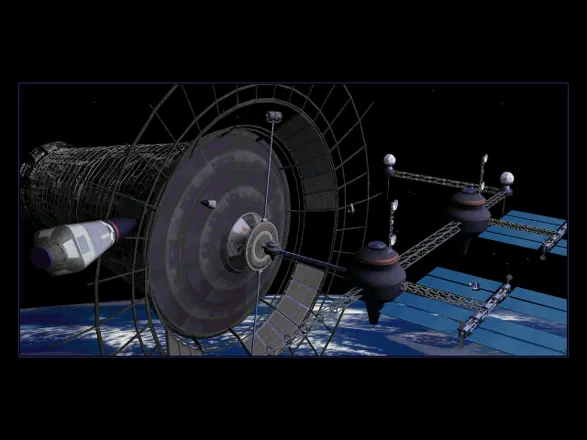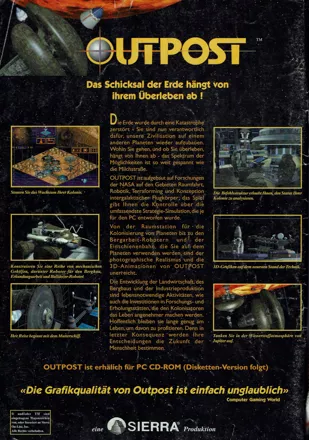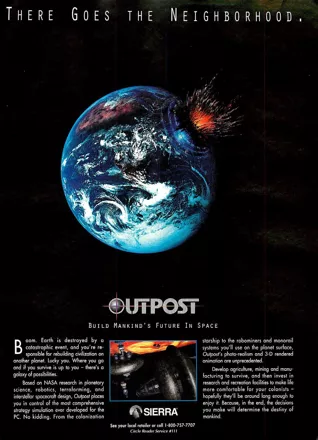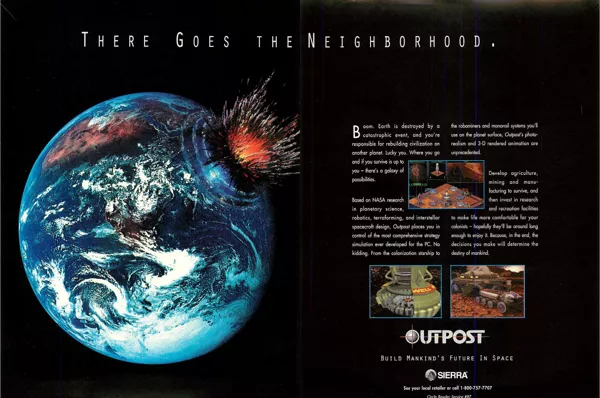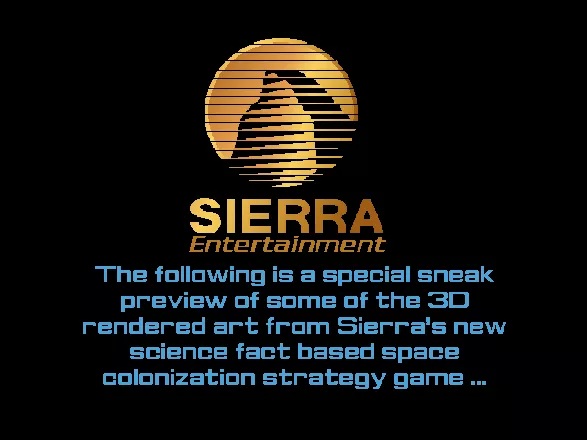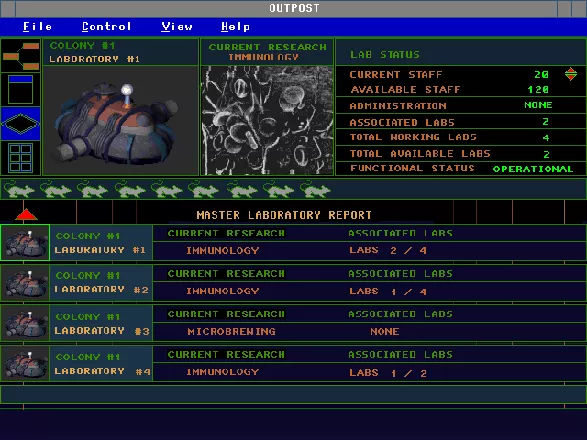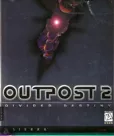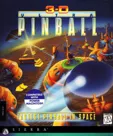Outpost
-
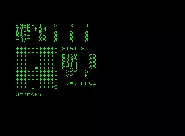 Outpost
(1980 on
Commodore PET/CBM)
Outpost
(1980 on
Commodore PET/CBM)
-
 Outpost
(1981 on
Apple II)
Outpost
(1981 on
Apple II)
-
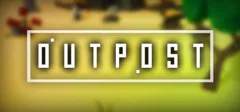 Outpost
(2020 on
Linux,
Windows,
Macintosh)
Outpost
(2020 on
Linux,
Windows,
Macintosh)
Description official descriptions
In the first part of the 21st century, scientists discovered a huge asteroid named Vulcan's Hammer headed straight for Earth. A single corporation decided the only way for survival was to colonize other worlds. One ship was launched and as it sat in orbit around Jupiter, Earth was no more. Now it is your task to seek out a new planet and repopulate it with human life. The game is set in an isometric third person perspective, like that of SimCity, in which you must re-colonize the planet while dealing with the intricacies of day-to-day life.
Spellings
- 生存 - Simplified Chinese spelling
Groups +
Screenshots
Promos
Videos
Add Trailer or Gameplay Video +1 point
See any errors or missing info for this game?
You can submit a correction, contribute trivia, add to a game group, add a related site or alternate title.
Credits (Windows 16-bit version)
23 People
| Designer | |
| Lead Programmer | |
| Project Manager | |
| Art Designer | |
| Programmers | |
| Artist | |
| Team QA | |
| Mascot |
|
| Music | |
| Sound Effects | |
| Manual Writer | |
| Manual Designer | |
| Localisation | |
| Narrator |
Reviews
Critics
Average score: 72% (based on 17 ratings)
Players
Average score: 2.4 out of 5 (based on 35 ratings with 4 reviews)
The Good
Outpost provides a great deal of realism when it comes down to what it would be like to build and develop a colony on an alien world.
The Bad
The multitude of broken and missing features.
The Bottom Line
OUTPOST is another great game that train-wrecked with all of history's other bad games. Not because the design was lacking. Not because the idea was bad. Because the game was released way too soon. It's an obvious fact that the manual for OUTPOST was written before the game was even finished so, naturally, it described many aspects of the game that didn't exist in the first release (e.g. roads, monorails, etc.). There were patches released that fixed all of these but, as is always the case, they were too late. The reviews were in, the towels were thrown and OUTPOST was forever marked as 'bad'.
But there are many things that made the game enjoyable. First, it was a great challenge for challenge seekers. You could never build your colony too fast or you would very quickly run out of resources leaving your colonists with nothing to operate their facilities.
There was the 'city building' simulation, great for the SimCity fans.
And there was the turn-based strategy component like Civilization.
OUTPOST was and still is a classic game in my mind. Both a classic catastrophe and a revolutionary game. As I am still a fan, I have recently uncovered a project to revive OUTPOST and bring it to the level that it should have been. Visit the Links section for more information.
Windows 16-bit · by Leeor Dicker (7) · 2005
Could have been a 5-star classic, but for the bugs.
The Good
I've always been astronomy nut, so I was quite happy to receive the v1.0 CD version of the game as a present from my parents back around the time of its release. Since then I've played the game every once and awhile, even buying the v1.5 CD version a few years back.
When I first started playing the game, the first thing I noticed was the amount of customization you could do in the beginning stages of the game. You must balance your survival needs while taking into consideration that you have limited space to store equipment, so deciding whether to take a fusion reactor or a solar satellite with you (or both) is a very important matter in the long run, because it is very difficult (especially in the beginning of the game) to make up for the lack of a needed facility due to the limited physical resources you have when you initially land.
The game is also suitably hard, given the scenario the game is simulating. During the beginning stages of the game, you are one step away from disaster all the time. You have nearly zero in the way physical resources (and mining starts slowly), your fellow colonists are quite depressed in regards to their current situation and you have to police them heavily lest they will turn to crime, and alien microorganisms threaten to ruin your day - especially since it takes months to research anything meaningful. As you become more established, the game actually gets easier, but not without additional concerns popping up from time to time. In other words, events unfold quite realistically.
The interface is also quite strong for a Windows 3.x game, with a fully featured right-click menu and easy to use controls. What you can access with that great interface may not make sense all the time (see "The Bad" for more), but you can get to it without any serious effort.
The graphics are also quite good - in fact, I would go as far to say that Outpost is the best looking Windows 3.x game ever made, but then again that isn't saying much. But really, it has great high resolution graphics.
As far as the audio-based media, I can't really complain much given the genre and the platform for the game; its mostly historical material from the NASA Moon program or the voice acting of your AI helper. Only one bit of music, but it is that excellent Classical piece known as "Mars" (forgot the composer's name, though), so it's fine.
A lot of other little touches here and there; the ability to research new technologies (as opposed to waiting for them to pop-up at random, ala SimCity), a demonstration of the impact of real-life near-future technologies (nanotechnology, for example) on a societal level in a realistic fashion come to mind right off the top of my head.
Outpost is really addicting, too. Really, really addicting. Moreso than it should be, given its problems.
The Bad
The main problem with Outpost is the same problem that affects many games these days; the dev team - for whatever reason - released the game too early, thus resulting it the product's share of bugs and missing features. For example, some features and buildings (which are referenced in the manual) were not implemented until the v1.5 release of the game, implying the game was still a few months away from a minimally satisfactory release date. It is also clear, from looking at both the strategy guide and some period conversations with the developers that there where a lot more features intended for this game - up to and including interactions with alien species. I wonder how many of these features the designers were going to include at the actual release.
Another valid criticism of the game is that it isn't exactly streamlined. The presentation of most Windows 3.x games wasn't good at all back in the day, and this is no exception. The user interface is easy enough to control, but the way information is displayed is unflinchingly NASA-like. There are no helpful guides or streamlined presentations of data here. You are given lots of hard numbers, and you better be adept at data management or your colony is dead meat. Or - in other words - if you find managing the budget in your SimCity games to be somewhat difficult, then I heartily recommend that you avoid Outpost. It just simply isn't the game for you.
There are some other complaints I could present here - like how the game universe is completely static, in that there is no real random content in this game, save for the outcome based on the player's skill. The position of all the planets and the resources on those planets are exactly the same from game to game, which limits replayability. Other things, like the fact that the rebel colony fragrantly violates the rules of colony design that you must abide by, also annoy.
The Bottom Line
To say that Outpost is - as CGW would have it - the worst game of all time is an overstatement. True, it has some serious design problems and was prematurely released on top of it all. However, I truly doubt that this game is worse than some of the more well-known stinkers in gaming history - like Battlecrusier 3000AD, which had an incomprehensible interface in addition to (even worse, potentially computer damaging) game design. I may not be totally satisfied by Outpost all the time, but at least I know my computer won't start emitting blue smoke during gameplay.
That being said, Outpost does have a lot of problems. This is a shame, as there is a truly excellent game just underneath the rough bits.
I can neither recommend Outpost nor can condemn it. It has very serious issues, but I have garnered numerous weeks of enjoyment from the product. Since it is so cheap to acquire these day's I would recommend that (if you are interested in management simulations) you acquire the game and immediately patch it. You might like it or you might hate it after you are done with it, but what do you have to lose for a few bucks?
If nothing else, pick up the excellent strategy guide. Someone else here said it was only fluff. Not so - there are some interesting things the devs bring up gameplay-wise (be sure to study the section on morale), and they go into the science behind the game and its setting. Great stuff, if you are into astronomy at all.
Windows 16-bit · by Longwalker (723) · 2007
Horrifying, this game shouldn't have been allowed to be released
The Good
You know, when I first saw this game I really wanted it to work out. It was a SimCity type of building game - which I liked - set in a sci-fi world during man's first steps into the universe - which I liked. Better yet it boasted realistic resource management, power, resources, etc., which provided physical limits to your expansion in addition to money. Let's call it SciCity.
The Bad
Everything.
No really, everything about this game is bad. In fact, I still have no idea how to play it.
The game starts with you in the new spaceship, looking at a star map. Ostensibly the purpose of this is to select a star to travel to in an attempt to find a good planet for your colony. Of course our ability to see planets is poorly developed, so you don't actually see if there are good planets there, but instead just the probability that there is a good planet there. That's fine with me I suppose, but in a painful example of design peeking out from behind the covers, the ones with higher probabilities are, of course, farther away and thus harder to get to.
This doesn't sound too bad though, right? Well it is. Just getting to this spot took lots of menu gymnastics and several slowwwwly loading movies. But what's really annoying is that I don't think the map actually does anything at all. I never arrived at a star without a planet, and they all looked pretty much identical. In fact I think there is only one planet, that would save some coding right? I think the whole map is a hoax, but it's too painful to actually test this theory.
Now you choose what to take along with you, given the limited space and weight available on the spacecraft. More people? More auto-factories? A weather sat? Hmmm, which is better? Good question, the manual certainly doesn't seem to suggest an answer. And just like the starmap, once again I couldn't find any difference in the outcome based on what I took with me, because the outcome was always the same regardless (see below).
Well now you're ready to go. You're treated to some movies of the ship heading off into space. And then arriving over your chosen planet. And then landing on it. Well sort of. The author decided to turn this into a "game" at this point, and the disaster it is illustrates the whole game perfectly. What happens is that a menu appears with the various things you have to do to land - drop any sats, land factories, etc. So you click on one and then hit OK, and watch it happen. And then the next. And the next. As Underdogs put it:
You must click the buttons from the top to the bottom, then press "OK". Well, that's it. That's what passed for "fun" in Outpost. I just can't imagine someone at Sierra thinking that pressing 8 buttons from top to bottom somehow added to the gameplay - "Doh, I forgot to press the first button! This game rocks!"
Heh.
Well now the stuff is down there on the surface, and at last the game actually starts. The screen changes to a 3D isomorphic view (very similar to SimCity 2000, as opposed to the original SimCity) and you start to build things.
Building is pretty much what you'd expect, although there are a few twists. One is that the planet has no (or bad?) atmosphere so you have to connect them all with tunnels. Terrain makes this difficult, but you can level it off if you want to. Another twist is that a lot of the construction goes on below ground, and you can flip between ground and underground views. Interesting I suppose, but while I would agree that it adds realism I didn't think it added anything to the game itself - except confusion as I didn't even discover this until a few plays in.
There are a wide variety of buildings and what I would call "support structures". They're built using the SimCity UI: select building, click placement. There's a lot of them though, located under a variety of annoying slow to react menus.
Now exactly what you should build, where, and how, I never figured out. In 100% of the times I tried (about four) all my colonists died off. I have no idea why. They didn't complain or anything, you could just see the population counter going down and down, and then they were all dead. So back to the start you go, another 10 minutes of setup to watch them all die again!
Of course it was probably something stupidly simple, but like all of the other mysteries, the manual didn't say anything. Nothing of significance was explained in the manual, unless you think "this is how to click" is significant.
I remember in the original SimCity manual started with an excellent description of all of the various things to build, and why. For instance, power plants produce polution, and that will drive down property value so you should put industry there. But it went further, they then went on to describe (in "detail lite") how the engine went about doing this, and creating things like traffic. Excellent!
Nothing like that in Outpost. Nope, the game was left utterly unexplained at all levels. The funny thing is that you could still figure out SimCity without the manual, but like I said, this game is completely indecipherable.
One day, a year or two after giving up on this heap, I came across the official strategy guide in a used book pile for $1, so I got it. You know what? It was EVEN WORSE. 250+ pages of fluff.
What makes all of this even more frustrating is all the boasting. Everyone talked about this game, it's graphics, it's realism, etc. As it was written by a bonna-fide rocket scientist, all the tech mags jumped all over it. The only thing I saw that looked right was the movie showing your rocket, so I guess that part worked.
So several years and two books later, I still have no idea how to play this game. Maybe someone figured it out, if so, I'd love to hear from you. It's the same sort of "love" that makes me pick at scabs.
The Bottom Line
A festering wound on the body of game design, don't even think about this game.
Windows 16-bit · by Maury Markowitz (266) · 2001
Trivia
Installation diskette
Despite being released on CD-ROM, version 1.0 of Outpost also included a "Launch Control Disk" in the box on a 3.5" Diskette. This floppy diskette contained BLDGBLD.DAT, BLDGOPS.DAT and OUTPOST.EXE, three files that were required to install the game.
Sales
Despite being considered one of the buggiest games of all time, Outpost was on PC Data's Top Ten best selling games list for several months.
Soundtrack
The orchestrated soundtrack is the classic Mars, the Bringer of War movement from the Gustav Holst symphony The Planets.
Strategy guide
There was an extensive Strategy Guide written for Outpost by the games designer, Bruce Balfour.
Awards
- Computer Gaming World
- November 1996 (15th anniversary issue) – Worst Game of All Time
- PC Player (Germany)
- Issue 01/1995 - Most Brutal Customer Stultification in 1994
- Power Play
- Issue 02/1995 – Biggest Disappointment in 1994
Information also contributed by Andrew Grasmeder, Leeor Dicker, Rola and WildKard
Analytics
Upgrade to MobyPro to view research rankings and price history! (when applicable)
Related Sites +
-
The Outpost Universe
Fansite for Sierras Outpost 1 & 2 games
Identifiers +
Contribute
Are you familiar with this game? Help document and preserve this entry in video game history! If your contribution is approved, you will earn points and be credited as a contributor.
Contributors to this Entry
Game added by Seer.
Macintosh added by Foxhack.
Additional contributors: Kalirion, Unicorn Lynx, Patrick Bregger, Rwolf, trembyle.
Game added June 15, 2000. Last modified August 13, 2024.


